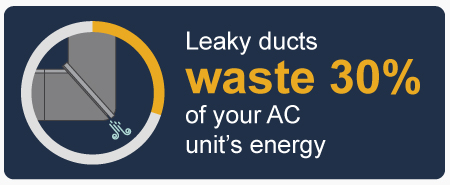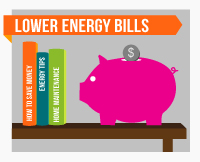Top 3 HVAC Problems in Portland During Spring
After a cold winter, it’s great to finally be able to open windows and let in the fresh air. Spring is also a good time to think about home maintenance, working on improvements, and checking tasks off the to-do List. One thing to consider is the condition of your HVAC system. Spring HVAC problems can be prevented by taking regular care of a system. Common problems Portland AC units experience include:
- Leaks
- Water, debris, and corrosion
- Freezing
- Dirty ducts, filters, fans, and coils
- Worn belts, motors, and moving parts
However, these problems can be avoided with maintenance. AAA Heating and Cooling performs inspections to provide comprehensive evaluations of specific needs, and how to maintain a system. We know how to identify, resolve, and prevent common problems.
1. Corrosion and Moisture in HVAC Systems
Water can corrode wiring and components, and reduce the efficiency and lifespan of a unit. Portland receives a fair share of rain, so it’s important to address the specific needs of a system in this kind of environment. This means taking precautions to protect a system from the elements, such as covering ducts, valves, fans, and openings vents to prevent debris and moisture from entering the system. It can be expensive to address water damage, so it’s important to catch any issues at an early stage, and learn to prevent future problems.

2. HVAC Systems Can Freeze or Leak
Once spring has finally arrived and you turn on the AC for the first time, you may discover it’s not functioning at an optimal level, perhaps as a result of damage that occurred during the winter. Cold temperatures can be problematic to an AC unit because moisture in the system can not only corrode wires, coils, and valves, but also freeze and cause leaks in ducts, valves, and pumps. Refrigerant leaks not only reduce the efficiency of a system, but they can also cause damage to other components. The extra strain decreases AC performance and can be costly.
Signs of damage include:
- Inadequate and uneven cooling
- The unit constantly runs
- High energy costs
3. Not So Fresh Air
Portland showers bring spring flowers – and flowers mean pollen. Pollen is not only a common allergen, but it can also affect the efficiency of an HVAC system. Spring is a good time to check filters for needed cleaning or replacement. With a dirty filter, pollen, dust, and other allergens will be circulated into the air you breathe. Air particles like pollen can clog ducts, affect fans, and cause a unit to work harder. This increases the energy bill and could shorten the lifespan of a system.
Coils are more exposed to the elements and are a more delicate component. They can become dirty and collect debris, reducing the efficiency of the cooling cycle. The coils require the expertise of a trained technician to clean them. If the coils aren’t operating properly, the efficiency and lifespan of the entire AC unit could be impacted.
Don’t get caught sweating in the summer heat by neglecting to do routine AC maintenance in the spring. Schedule an appointment today!
6 Great Reasons to Replace Your Old & Failing HVAC Equipment
As a home or business owner, you’re likely well aware of the seemingly endless to-do list when it comes to keeping your space comfortable, safe, and healthy. In addition, the wear and tear on appliances and other systems can leave you frustrated with the repair and maintenance costs. A tight budget may also make you feel reluctant to upgrade your old HVAC system. However, due to the high price of repairs and utility bills, outdated units can cost you more in the long run.
So when should you replace your HVAC system? Firstly, it’s crucial to understand the correlation between old, inefficient heating and cooling equipment and wasted energy, which in turn, leads to wasted money. An excellent way to save on energy and HVAC costs is to invest in a new heating and cooling system.
Is it time to upgrade your HVAC unit? To answer this question, we’ve outlined six excellent reasons to replace your old and failing HVAC equipment.
 1. Reduced Utility Costs
1. Reduced Utility Costs
New residential HVAC systems require less energy to operate. This means reduced heating, cooling, and electrical costs for homeowners, making a new unit a smart investment. New HVAC systems also consume less energy than older units. As a result, home and business owners can save on energy during peak summer and winter months in Portland. Most new units reduce utility costs by more than 15 percent.
2. Reduced Maintenance & Repairs
In addition to requiring less energy to run, new HVAC units do not need as much maintenance as older models and will need to be repaired less often. As a result, you’ll save money on the cost of service checks and last-minute repair services.
 3. Rebates & Other Cost Incentives
3. Rebates & Other Cost Incentives
Installing a new HVAC system in your home or business may come with the added benefit of rebates, tax credits, and other cost incentives. Homeowners can save money through Oregon’s RETC (Residential Energy Tax Credit) program as well as the federal Residential Energy Efficiency Tax Credit. Business owners can enjoy cost savings through Oregon’s energy incentive programs and the federal Business Energy ITC (Investment Tax Credit). At AAA Heating and Cooling, we’ll handle all the necessary paperwork for you for a hassle-free installation process.
4. Eliminated Production of CFC Refrigerants
Modern heating and cooling systems do not produce freon, carbon, chlorine, and other CFC (chlorofluorocarbons) refrigerants which prevents the need to repair leaks. In addition, CFC refrigerants are known to deplete the ozone layer, so a new residential or commercial HVAC unit has eco-friendly benefits as well.

5. Improved Indoor Air Quality
Certain pollutants including mold, carbon monoxide, pollen, dust, gas, and airborne chemicals can impact the quality of your indoor air. Upgrading your heating and cooling system will improve the indoor air quality in your residential or commercial space. If you’re unsure about your current indoor air quality, schedule a service check with a trained specialist from AAA Heating and Cooling.
6. Reduced Carbon Footprint
Replacing your old HVAC equipment will reduce your home or business’s energy waste. In Portland, mandates are in place to regulate energy use in buildings. Energy-efficient HVAC equipment will help you meet the goals outlined by the ETO (Energy Trust of Oregon).
The Best HVAC Systems in Portland from AAA Heating and Cooling
Upgrading your heating and cooling system should be viewed as an investment. Older units can rack up high bills in the form of repairs, maintenance, utility costs, tax rates, and healthcare due to poor indoor air quality. Replacing your old, inefficient HVAC equipment will reduce your bills and carbon footprint, improve your air quality, and create a greener living or work environment. Our Portland HVAC installers are trained and knowledgeable in virtually every type and model when it comes to heating and cooling units.
At AAA Heating and Cooling, we offer several types of commercial and residential HVAC systems designed with efficiency, affordability, and year-round comfort in mind. We provide HVAC services in Portland and the surrounding areas. To learn more about the heating and cooling systems offered from AAA or to schedule a service appointment, contact a member of our team today by calling (503) 284-2173.